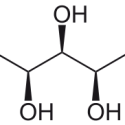30 Mar Despite Claims, Xylitol May Not Help Prevent Tooth Decay
MedicalResearch.com Interview with:
Philip Riley
Cochrane Oral Health Group, School of Dentistry
The University of Manchester
Manchester, UK
Medical Research: What is the background for this study? What are the main findings?
Response: As tooth decay is still so prevalent worldwide, despite being entirely preventable, it is worth assessing the evidence for other adjunctive ways for the public to help prevent the disease. Manufacturers of xylitol products commonly make the claim that this natural sweetener prevents tooth decay, and we felt that the public deserved to know if the best quality evidence backs up such claims.
We found that there was a lack of evidence from randomised controlled trials (the best type of study design for testing the effects of interventions) to prove that xylitol products can prevent tooth decay. We found some low quality evidence suggesting that xylitol added to fluoride toothpaste may reduce tooth decay in children’s permanent teeth by 13% over a 3 year period when compared to fluoride toothpaste without xylitol. However, these findings should be interpreted with caution and may or may not be generalizable to other populations. There was insufficient evidence to conclude that xylitol in chewing gums, lozenges, candies/sweets, syrups and wipes can prevent tooth decay in children or adults
Medical Research: What should clinicians and patients take away from your report?
Response: We are not saying that xylitol definitely does not prevent tooth decay, but any recommendations by clinicians to take xylitol for the purpose of preventing tooth decay are not based on the most robust evidence that would be appropriate to answer this question. Sugar causes tooth decay, so products containing a sweetener that does not cause tooth decay (such as xylitol) are of course preferable to their equivalent sugar-containing products. The best way to avoid tooth decay is to eat less sugar and brush with fluoride toothpaste.
Medical Research: What recommendations do you have for future research as a result of this study?
Response: We would welcome more well-conducted, adequately powered, randomised placebo-controlled trials assessing the effects of different xylitol products for preventing tooth decay in both children and adults. Trials should investigate a range of dosages of xylitol, including the recommended ‘threshold dose’ of 5 to 6 g per day, below which it is currently thought that xylitol would not have an effect on tooth decay.
Citation:
MedicalResearch.com Interview with: Philip Riley (2015). Despite Claims, Xylitol May Not Help Prevent Tooth Decay
Last Updated on March 30, 2015 by Marie Benz MD FAAD

